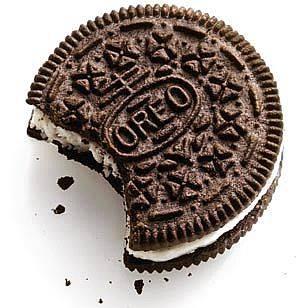The research was intended to highlight the potential addictiveness of high fat and high sugar foods.
Joseph Schroeder, professor of psychology at Connecticut College, who conducted the study with his students, said that eating Oreos was similar to taking morphine or cocaine and that the cookies activated more brain neurons than drug-taking.
“Our research supports the theory that high-fat/high-sugar foods stimulate the brain in the same way that drugs do. It may explain why some people can’t resist these foods despite the fact that they know they are bad for them.”
Mondelez: ‘Foods are complex’
Mondelēz International said that it understood the research had yet to be published in a peer reviewed journal.
It said in a statement: “As we have not seen it, nor had any contact with the professor or school where the research took place, we are not in a position to comment on research specifics and/or methodology.
“We would caution against interpreting any results as specific to Oreo cookies, since they appear to be used in this research as a proxy for a non-specific ‘sweet' variable.
"While it may seem simple to bucket foods as ‘good' or ‘bad', the reality is that foods are complex, and encouraging people to enjoy a balanced diet paired with physical activity is most important.”
Why pick on Oreos?

The idea for the research came from Jamie Honohan, a scholar at the College.
“We chose Oreos not only because they are America’s favorite cookie, and highly palatable to rats, but also because products containing high amounts of fat and sugar are heavily marketed in communities with lower socioeconomic statuses.”
A previous study by scientists at the University of Michigan found that Mars’ M&Ms stimulated the brain chemical enkephalin prompting rats to gorge.
A recent book by New York Times journalist Michael Moss, ‘Salt, Sugar, Fat’ argues that food companies are cram products with high salt, sugar and fat levels to keep consumers coming back for more.
Study method
In the Connecticut College study, rats were placed in a maze containing Oreos on one side and rice cakes on the other. Perhaps unsurprising, the rats spent more time on the Oreo side.
“They would break it open and eat the middle first,” said Honohan.
The researchers compared the results to an earlier study where rats were given an injection of cocaine or morphine on one side of the maze and a shot of saline on the other. They found rats spent as much time on the drug side of the maze as the Oreo side.
The team also monitored a protein called c-Fos, a marker of neuronal activation known as the brain’s “pleasure center”.
They found that Oreos activated more neurons than both cocaine and morphine.
“This correlated well with our behavioral results and lends support to the hypothesis that high-fat/high-sugar foods are addictive,” said Schroeder.
